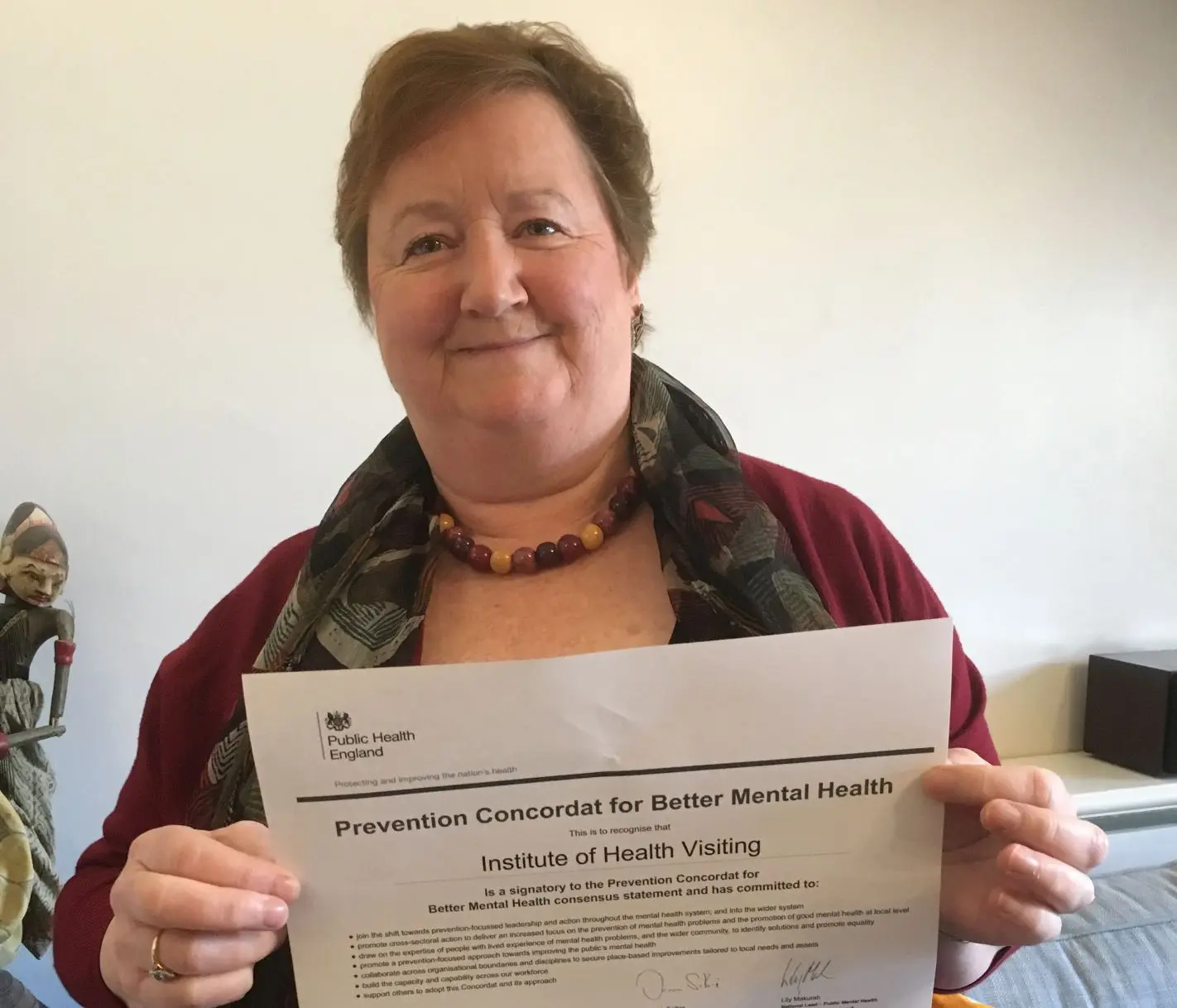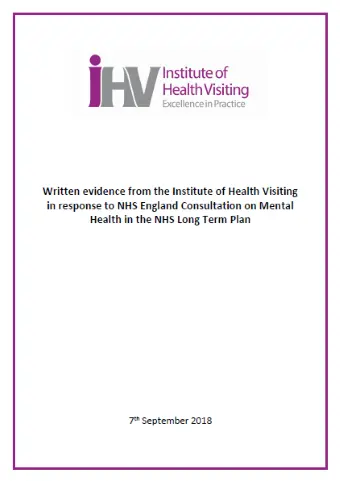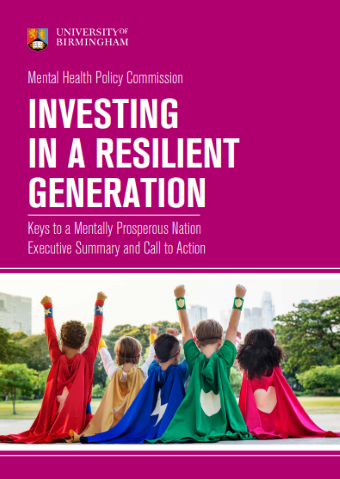On International Fathers’ Mental Health Day (#DadsMHDay) 2019, we are delighted that one of our iHV Fellows, Sharin Baldwin, presented at the Talking Dads conference in Blackpool today – organised by the Blackpool Centre for Early Child Development.

Sharin Baldwin RN, RM, RHV, QN, FiHV, iHV Research Champion, BSc (Hons), PG Dip, MSc, NIHR Clinical Doctoral Research Fellow, King’s College London Clinical Academic Lead, Nursing and Midwifery, London North West University Healthcare Trust
The Talking Dads Conference brought together a national audience of fellow practitioners, academics and volunteers to discuss the importance of Dads in early years, with leading national experts, including Sharin, in the field of early child development providing a national and international perspective on the innovative work surrounding the role of Dads, and that of men’s mental health and wellbeing.
Updated resource
In addition on #DadsMHDay, we are pleased to share updated resources from Sharin for health visitors:
UPDATED GPP – Understanding father’s mental health & wellbeing during their transition to fatherhood
These updated GPPs set out what health visitors need to know about Understanding Fathers’ Mental Health & Wellbeing during their transition to parenthood. As part of every contact, HVs should routinely enquire about fathers’ mental health and wellbeing, and offer appropriate support and advice to fathers, as well as mothers.
They provide updated evidence and references.
iHV PIMH Conference – Perinatal and Infant Mental Health: Relationships Matter!
Why not join us at our forthcoming annual Perinatal and Infant Mental Health (PIMH) Conference where we are delighted to announce that Sharin will be speaking.
Perinatal and Infant Mental Health: Relationships Matter! is being held on 10 September in London – bookings are now open and we do expect tickets to go quickly – our last two conferences have been sold out!
About Sharin
Sharin is a trained nurse, midwife and health visitor. She is a keen advocate for health visiting and her research interest is Mental Health and Wellbeing of Fathers, an area that is fairly neglected. She is currently undertaking a PhD in this area (www.newdadstudy.com) at King’s College London and is the first health visitor to be awarded a Clinical Doctoral Fellowship by NIHR.
Sharin also works as Clinical Academic Lead in London North West Healthcare Trust. She is a Queen’s Nurse, Fellow of the Institute of Health Visiting (iHV), iHV Perinatal Mental Health Champion and Health Visitor Research Champion. She has co-authored a book chapter titled ‘Working in Diverse Communities’ in a health visiting text book. Sharin has published several research papers in reputable professional journals and is a peer reviewer for the International Journal of Nursing Studies, Primary Health Care Research and Development, Midwifery and the Institute of Health Visiting. Sharin is also on the editorial board for the Journal of Health Visiting.
https://kclpure.kcl.ac.uk/portal/sharin.1.baldwin.html









